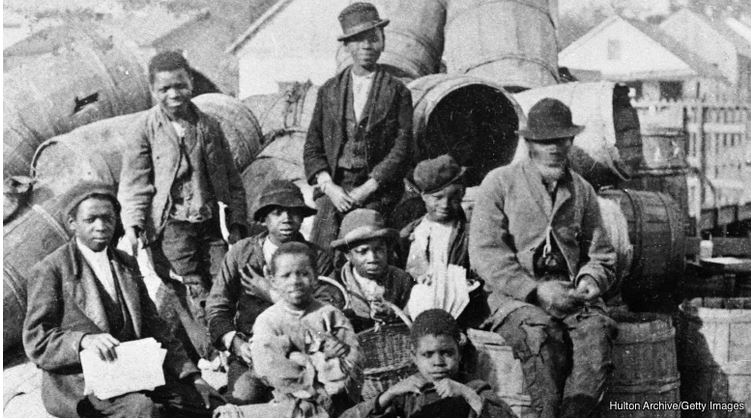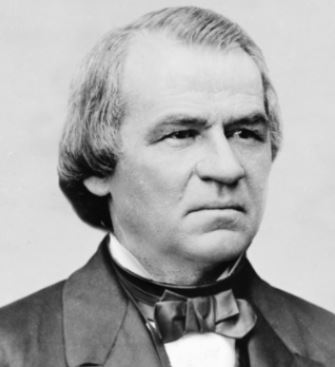
(Citizens observing Juneteenth in 1866).
There was some minor controversy in the ongoing social conflict in America over the Memorial Day Weekend, and a couple stories that can be respectfully put away until the next one. It used to be a traditional American holiday honoring the fallen of wars we remember and others we do not. With this First of June I was thinking about holidays and celebrations, but dates have their own imperative. We are back to fighting other conflicts of other years, and new holidays raised for old indignities and brutal oppression. Since our Boomer generation is toppling off the position of primacy in society, new generations are inventing their own new old history. Some of it had been forgotten, mostly, but are still filled with hundred-year old horror. I had run across mention of what happened in Tulsa before, and always had a curiosity that such an act had lain, partly recollected but submerged in the great changes of a half century leading to the Civil Rights struggle I remember. Since the 1960s, our part of it was largely forgotten by those who are generating the social narrative today, as if the massive change we lived since 1965, six decades past, had never occurred.
This morning’s headlines summed it up, for those who do not recall the attack on what had been a bustling African-American community in today’s Tulsa, Oklahoma. Our press summed it up this morning: “President Biden will visit Tulsa today to honor the victims of the race massacre that destroyed a Black community 100 years ago.”
I think it should be remembered. Not only for the wonton violence, but the impact of technology. It was the first use of airplanes in the delivery of ordnance against American civilians. What is excised from the story is what happened in the years after. We are told, essentially, that nothing has changed. With this magic month of transition to the seasonal warmth, I intend to honor Juneteenth when the 19th arrives. You recall a continuing effort to officially memorialize a significant day in our history. In 1865 a massive war had been concluded in North America. In the conflict, the better part of a million Americans died through combat, disease and social dislocation. Juneteenth is the oldest nationally celebrated commemoration of the ending of slavery here in the United States. On June 19, 1865, a Union General rode into Galveston, Texas, to announce that the Civil War had ended, and the slaves had been freed.

(General Gordon Granger
Naturally there is more to the story. Texas was the most distant of the old slave-holding states from Washington, and the Federal troop presence was the smallest in the occupied South. On June 19th of 1865, Union General Gordon Granger issued General Order Number Three, proclaiming the emancipation from slavery in Texas. It was complicated but necessary in Granger’s view. President Lincoln had announced the prohibition of slavery in Texas more than two years earlier, but enforcement normally was imposed by force of arms and the presence of Union troops on the ground. With the President’s assassination in April of that year, new President Johnson brought the sensibilities of his upbringing to office. He summed up his view on the end of the great war this way:
“…there is no such thing as reconstruction. These States have not gone out of the Union, therefore reconstruction is unnecessary. I do not mean to treat them as inchoate States, but merely as existing under a temporary suspension of their government, provided always they elect loyal men. The doctrine of coercion to preserve a State in the Union has been vindicated by the people. It is the province of the Executive to see that the will of the people is carried out in the rehabilitation of the rebellious States, once more under the authority as well as the protection of the Union.”
But as noted, this vast war had been fought against a constitutional argument regarding the 10th Amendment and the role of the Federal and State governments. Johnson himself was a compromise candidate for the Vice Presidency, at that time regarded as symbolic, and worth the value of an office regarded with the same solemnity as former VP John Nance Gardner, who termed it worth a “warm bucket of spit.” His remarks originally cited a different liquid, but history has its ways.
Screen Shot 2021-06-01 at 11.28.46 AM.png
(The Other President Johnson)
As the 17th President, Johnson was something else entirely. As part of Lincoln’s re-election in wartime, Johnson was a symbol. By inclination he was a Democrat aligned with the Jacksonian spirit. Born in North Carolina, he had been an apprenticed tailor for a time, and gifted at public speaking. His outlook reflected an old-fashioned southern view with an inclination to support states rights, enshrined in the Bill of Rights in the final of the original amendments, which held that powers not specifically allocated to the Federal government were reserved to the states and the citizens.
The idea that John Wilkes Booth had murdered the man responsible for crushing the Confederacy led immediately to tension. In some regards, Johnson’s legacy is one of the others that changed history and has had little mention in the popular historic narrative which is under emotional review today. The old, charitable view was that he was an “honest and honorable man,” but one of the most unfortunate of Presidents. The radical Republicans in Congress, bereft of their leader in the White House, were brilliantly led and ruthless in their tactics to achieve a complete social victory and revision of the social norms of a vanquished South.
Johnson was complex, and not a symbol of Union victory. He had made his reputation championing the common man and vilifying the plantation aristocracy. As a Member of the House of Representatives and the Senate in the 1840’s and ’50’s, he advocated a homestead bill to provide free farms for poor Americans. He had remained in the Senate even when Tennessee seceded, which made him a hero in the North and a traitor in the eyes of most Southerners. In 1862 President Lincoln appointed him Military Governor of Tennessee, and Johnson used the state as a laboratory for reconstruction. After Lincoln’s murder, now-President Johnson proceeded to reconstruct the former Confederate States while Congress was not in session. He pardoned all who would take an oath of allegiance to the restored Union, but inserted some special requirements for obtaining special Presidential pardons by pillars of the old social order. By the time Congress reconvened in December of 1865, most southern states were ‘reconstructed,’ though ominous “black codes” to regulate the newly freed people were beginning to appear.
The radicals Radical Republicans in Congress moved vigorously to change Johnson’s program. They gained the support of northerners who were dismayed to see Southerners keeping many of their pre-war leaders and imposing restrictions upon people now “free,” but subject to a variety of restrictive regulations that ultimately became known as Jim Crow.
So that is a cursory rendition of what was going on under Johnson’s ambiguous Administration from the start. While General Order Three is generally celebrated as the end of slavery in the United States, it was still legal (and practiced) in Delaware and Kentucky ratification of the 13th Amendment abolishing chattel slavery natonwide.
Today we remember Tulsa, but celebrating Juneteenth as a holiday is one I prefer. In 1866 it first involved church-centered gatherings in Texas but spread over time across the South. It took a while, but by the 1920s (and the Tulsa Massacre) it began to be commercialized. By the 1960s and the Civil Rights era, it was minimized in the interest of the Movement, and Dr. King’s impressive leadership for non-violent change. In our current still-new century, activists are campaigning for Juneteenth to be recognized as a national holiday.
Forty-seven of the fifty states (and the District of Columbia) recognize June 19th as a ceremonial or state holiday. Currently, only the Dakotas and Hawaii do not. I assume that something will happen in the years ahead to formalize the recognition of a national celebration along with important things that are not.
Or something. Like I said, it is sort of complicated. I wonder what it might have been like if Lincoln had lived. We might be doing better. Or maybe we be trying to remember and forget a different set of memories.
Copyright 2021 Vic Socotra
www.vicsocotra.com
